All Stories
-
 Animals
AnimalsHere’s how kingfishers avoid concussions during high-speed dives
Understanding the genetic adaptations that protect the birds’ brains as they dive might one day offer clues to protecting human brains.
-
 Materials Science
Materials ScienceLet’s learn about graphene
Scientists have been trying to understand and harness this material’s superpowers since its discovery in 2004.
-
 Math
MathThis civil engineer turns to math to make energy more affordable
Destenie Nock uses computer algorithms to help identify households struggling to afford utilities.
-
 Physics
PhysicsScientists Say: Polarized light
Sunlight, lamplight and other lights are usually unpolarized. But passing light waves through filters can ‘polarize’ them.
-
 Planets
PlanetsHuge polygons on Mars hint its equator may once have been frozen
A Chinese rover used radar to reveal long-buried terrain. The discovery hints that Mars’ equator was once much colder and wetter.
By Elise Cutts -
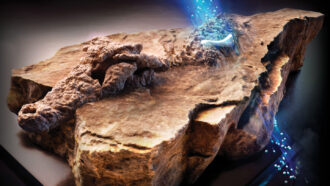 Physics
PhysicsNeutrons are unveiling hidden secrets of fossils and artifacts
Images made with these particles have revealed details of dinosaur bones, mummies and more.
-
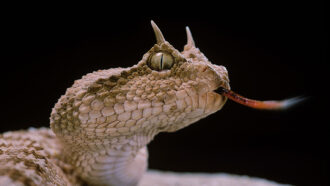 Animals
AnimalsHorned lizards and snakes tend to ambush their prey
The reptiles’ horns could help or hinder during foraging, depending on how they hunt. This might be why horns evolved in some species and not others.
By Jake Buehler -
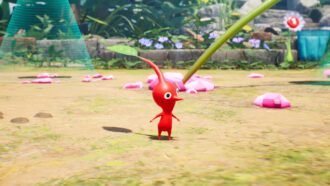 Animals
AnimalsPikmin’s plant-animal mashups don’t exist — but sun-powered animals do
Corals team up with photosynthetic zooxanthellae. Some sea slugs steal chloroplasts. How might animals and plants team up in Nintendo’s Pikmin games?
-
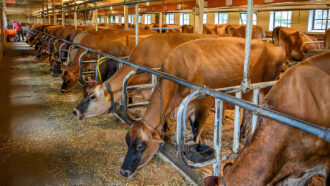 Climate
ClimateChemists make device to destroy planet-warming methane pollution
It can slash diffuse sources of this extremely potent greenhouse gas, such as from livestock barns and other sites.
By Laura Allen -
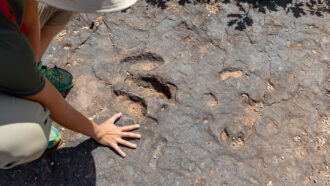 Life
LifeScientists Say: Ichnology
This field of science looks to understand life — past and present — by studying how organisms altered their surroundings.
-
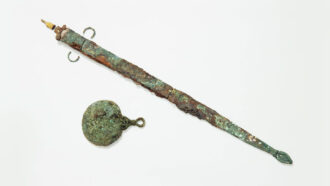 Archaeology
ArchaeologyIron Age grave in England points to a possible woman warrior
The grave holds a sword. It hints the buried woman fought or helped plan raids some 2,000 years ago in what’s now southwest England.
By Bruce Bower -
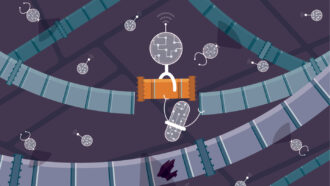 Tech
TechSynthetic biology aims to tackle disease and give cells superpowers
DNA machines and protein-mimicking nanotech could replace broken machinery in cells or even lead to made-from-scratch synthetic life.